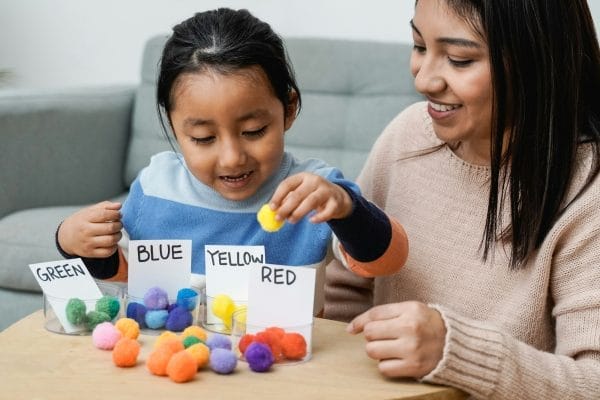Montessori Works: Engaging and Educating Children Through Hands-On Learning
When it comes to early childhood education, the Montessori method stands out as a unique and effective approach. Developed by Dr. Maria Montessori over a century ago, this educational style is grounded in the belief that children learn best through hands-on experience and at their own pace. A key component of the Montessori method is what’s known as “Montessori works,” which encompasses a range of activities designed to engage and educate children.

What Are Montessori Works?
![]()
Montessori works are carefully designed tasks that children undertake in a Montessori classroom. These tasks are not just random activities but are specifically created to aid in the cognitive, social, and physical development of the child. They are categorized into different areas such as practical life, sensorial, mathematics, language, and culture. Each work is meant to be self-directed, allowing children to take ownership of their learning process.
The Montessori Work Period
![]()
A crucial aspect of the Montessori method is the uninterrupted work period. This is a block of time, typically lasting around three hours, where children are free to choose and focus on their Montessori works without interruption. During this time, educators observe and guide rather than dictate, allowing for a child-led learning experience. The uninterrupted work period is essential because it:
- Respects the child’s natural learning rhythm.
- Encourages deep concentration and focus.
- Allows for the completion of complex tasks.
- Promotes a sense of calm and order in the classroom.
The Montessori Three Hour Work Cycle
The Montessori three hour work cycle is a fundamental concept that outlines how a child’s work period is structured. Divided into segments, this cycle includes a beginning phase where children select their work, a deep concentration phase where they become fully engaged in an activity, and a closing phase where they wind down and reflect on their work. This rhythm caters to the natural ebbs and flows of a child’s attention and energy throughout the morning or afternoon.
How Montessori Work Plans Foster Independence
![]()
Montessori work plans are tools that help students track their progress and plan their activities. These plans empower children to make decisions about their learning, fostering independence and self-motivation. With the guidance of their teacher, children learn to set goals, manage their time, and take responsibility for their education from a young age.
The Role of the Montessori Educator
While children are given freedom, Montessori educators play a critical role in preparing the environment and guiding the child’s learning. They observe the children, noting their interests and development, and introduce new works as appropriate. This delicate balance between freedom and guidance helps each child reach their full potential.
Montessori Works in Practice: A Closer Look
![]()
Let’s delve into some specifics of how Montessori works function in the classroom:
Practical Life Works
These are designed to teach children about caring for themselves and their environment. Examples include pouring water, buttoning, and sweeping. These activities help develop fine motor skills and a sense of responsibility.
Sensorial Works
Sensorial materials allow children to explore their senses and learn about the world around them. These could include sound cylinders, color tablets, or geometric solids, all of which refine the child’s senses and cognitive skills.
Mathematics Works
Montessori mathematics materials are tactile and visual, helping children understand complex concepts in a concrete way. For example, the golden bead material introduces children to the decimal system through hands-on manipulation.
Language Works
Language works in Montessori classrooms are rich and varied, from tracing sandpaper letters to constructing words with movable alphabets. These activities lay the foundation for reading and writing.
Cultural Works
Cultural works encompass geography, science, art, and music. Materials like puzzle maps and classification cards help children understand their place in the world and appreciate diverse cultures.
Benefits of Montessori Works
![]()
Research and case studies have shown several benefits of the Montessori method and its works, including:
- Improved academic performance
- Enhanced social and emotional development
- Greater creativity and problem-solving skills
- Higher levels of independence and self-discipline
Challenges and Considerations
![]()
Implementing the Montessori method isn’t without its challenges. It requires specially trained teachers, specific materials, and a dedication to the philosophy. Additionally, it may not be the right fit for every child or family. However, those who embrace Montessori often find it to be a transformative educational approach.
Conclusion: The Lasting Impact of Montessori Works
![]()
Montessori works are more than just educational tasks—they are building blocks for life. By fostering independence, concentration, and a love for learning, the Montessori method prepares children not just for school, but for the world beyond the classroom. As we continue to value and understand the importance of early childhood education, Montessori works stand out as a powerful testament to the capability of young minds when given the freedom to explore, learn, and grow.





